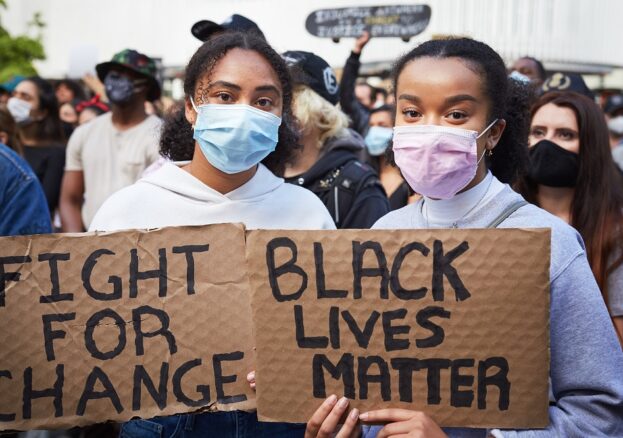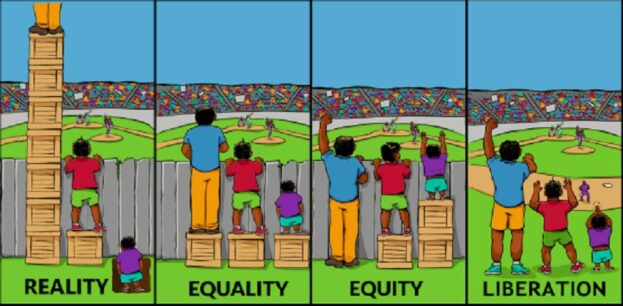
British society, with its organisations, establishments and those who lead them, cannot change the past. They could however accept and publicly acknowledge the African Holocaust known as the “maafa” that was inflicted on people of African Heritage via the Mohomadon Enslavement, Transatlantic Enslavement and then the colonisation of Africa as a result of the Berlin Conference of 1884, which laid the foundations for European and Western national wealth creation. These systems have resulted in the UK Black community being most likely of all ethnic groups to have an average weekly income of under £400 according to Gov.UK
While British society recoils at scenes from the United States showing unimaginable treatment of African Americans, the roots of the tree can be seen firmly in Britain and Europe, as it was the Roman Catholic Church who passed a Papal Bull to enslave indigenous people in the Americas and Africa.
Descendants of those who were enslaved have never received any financial reparation, and the message from some quarters is ‘Sorry, but you are free now, get on with it.’ No systematic actions have been taken to address the massive inequity still existing for those of African heritage in Britain and further afield.
As we navigate this historic Coronavirus Pandemic, many Black/ African community activists have experienced being racially ‘gaslit’ whenever we fight or speak for the race we were born into (as defined by European/ Arab classifications). All too often, this is by individuals and organisations stating that they stand for equality.
Black people have fought alongside many who have experienced different forms of racism, however – and it is grieving to say – those others only sometimes demonstrate they want the same equity for blacks as for themselves. The form of racism experienced by people of African heritage has been self-defined as ‘Afriphobia’ which is the prejudice, discrimination, fear, hatred and bigotry towards people of African Heritage and things African.
Afriphobia is strongly interlinked with colourism and the hierarchy of racism. Those of African heritage have experienced Afriphobia not just from Europeans, but also from Asians. This can and will no longer be ignored, or quietly go unmentioned. All forms of wrong done to those of African heritage must now – is and increasingly is being – called out, no matter who is contributing to the injustice.
Many in Britain repeatedly say, “We are not the US” and assert “All lives matter!” to close down calls for equity and liberation, which go beyond equality. The illustration shows that equality does not translate into equity, and in this world equity is about economics and money. The creation of racism was always about economic power and subjugation.

As an African Heritage woman, I have seen and experienced first-hand, in so many ways, covert Afriphobia at work and in politics. British society and the current world order wants us for our strength, intelligence and creativity but do not demonstrate a wish for us to ever have equity with them, or build for ourselves in ways that do not increase their wealth like my ancestors did.
This brings us to Windrush, where a generation of people who were told they were British were invited to this country to rebuild it after many had volunteered, fought and died in World War Two. The Government’s definition of those included in the Windrush Generation includes people of the Commonwealth from African nations, Australia, Canada, Caribbean Islands, New Zealand, South East Asia who migrated to the UK between 1948 and 1971. Yet strangely, the victims of the Windrush Scandal – the Government conveniently forgetting the citizenship given – have been predominantly of African and Caribbean heritage.
I am so proud of the African Heritage youth in the UK, US and worldwide who have lifted their ancestors by ‘self-organising’ within the Black Lives Matter movement. When we were talking, singing, crying, stressed and traumatised by the Afriphobia we experienced on a daily basis, the younger generation were listening, learning and taking it all in.
Jacqui Burnett (Cllr)
FMAAT, MCMI
Vice Chair of the African Caribbean Community Development Forum Ltd (ACCDF)
Chair of Luton Sankofa Committee
